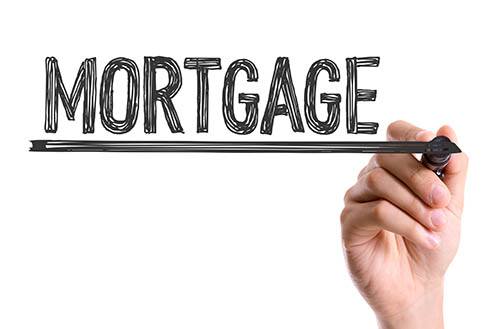 Economic news was impacted by the Martin Luther King holiday on Monday and the Presidential Inauguration on Friday. Readings released included reports on inflation, the National Association of Home Builders Housing Market Index and Commerce Department releases on housing starts and building permits issued. Weekly reports on mortgage rates and new jobless claims were released as scheduled.
Economic news was impacted by the Martin Luther King holiday on Monday and the Presidential Inauguration on Friday. Readings released included reports on inflation, the National Association of Home Builders Housing Market Index and Commerce Department releases on housing starts and building permits issued. Weekly reports on mortgage rates and new jobless claims were released as scheduled.
Home Builder Confidence Dips as Inflation Ticks Upward
The National Association of Home Builders Housing Market Index dipped from December’s reading of 69 to 67. Ongoing challenges including a short supply of lots for development and inability to hire skilled labor were cited, but builders were also confident that market conditions will improve due to a pro-construction stance in the new administration’s policies.
Inflation rose by 0.10 percent to 0.30 percent in December against expectations that inflation would rise by 0.20 percent. November’s reading was also 0.20 percent. The Federal Reserve has long cited a goal for inflation to reach an annual rate of 2.00 percent; incremental month-to-month increases in inflation will help achieve the Fed’s benchmark. Core Consumer Price Index readings do not include volatile food and energy sectors and held steady with a reading of 0.20 percent, which matched expectations and November’s reading.
Housing Starts Increase as Building Permits Slip
According to the Commerce Department, housing starts rose to 1.226 million against an expected reading of 1.200 million housing starts and November’s reading of 1.292 million starts. Building new homes is a priority for home builders as housing markets have been hampered by a lack of available homes. High demand has driven up home prices in many areas and has caused a great deal of competition in highly desirable metro areas. This has permitted investors and other cash buyers to prevail in home sales where multiple offers were made.
Building permits were lower in December with a reading of 1.210 million permits issued as compared to 1.212 million permits issued in November. Winter weather and holidays likely contributed to the dip in permits issued.
Mortgage Rates Fall for Third Consecutive Week
Mortgage rates fell last week for the third consecutive week. 30-year fixed rate mortgages had an average rate of 4.09 percent as compared to the prior week’s reading of 4.12 percent. 15-year fixed mortgage rates averaged three basis points lower at 3.34 percent. The average rate for a 5/1 adjustable mortgage rate was two basis points lower at 3.21 percent. Discount points for fixed rate mortgages averaged 0.50 percent; average discount points for 5/1 adjustable rate mortgages averaged 0.40 percent.
New jobless claims fell sharply from 249,000 to 234,000 claims. Analysts had expected a reading of 245,000 new jobless claims. Analysts said that layoffs reached their lowest level since the 1970’s. Job security is an important consideration for prospective home buyers; stronger job markets will likely positively impact housing markets.
What‘s Ahead
Next week’s scheduled economic reports include readings on new and existing home sales and consumer sentiment. Weekly readings on mortgage rates and new jobless claims will be released as usual.

 There is always uncertainty in the market in an election year, but many people are wondering exactly what kind of impact Donald Trump’s election will have on their mortgage and the real estate options available. Whether you are still paying off your home or have been shopping around for the right one, here are some possibilities for the real estate market following the results of the 2016 election.
There is always uncertainty in the market in an election year, but many people are wondering exactly what kind of impact Donald Trump’s election will have on their mortgage and the real estate options available. Whether you are still paying off your home or have been shopping around for the right one, here are some possibilities for the real estate market following the results of the 2016 election. January’s National Association of Home Builders Housing Market Index dipped two points from December’s revised reading of 69 to 67; the index reading forecast for January was also 69.Analysts said that January’s reading was the second highest (after December 2016) since the peak of the housing bubble in 2005. January’s dip in builder sentiment was attributed to easing of builder enthusiasm, which spiked right after the U.S. presidential election. To put January’s home builder confidence reading in context, NAHB says that any index reading over 50 indicates that more builders than fewer have confidence in housing market conditions.
January’s National Association of Home Builders Housing Market Index dipped two points from December’s revised reading of 69 to 67; the index reading forecast for January was also 69.Analysts said that January’s reading was the second highest (after December 2016) since the peak of the housing bubble in 2005. January’s dip in builder sentiment was attributed to easing of builder enthusiasm, which spiked right after the U.S. presidential election. To put January’s home builder confidence reading in context, NAHB says that any index reading over 50 indicates that more builders than fewer have confidence in housing market conditions. The monthly mortgage payment can be burdensome for many, but it’s possible you’ve thought of trying to pay it down more quickly. Without getting a new job or working overtime, here are some tips you can use on a daily basis to save additional funds and pay off your mortgage at a swifter rate.
The monthly mortgage payment can be burdensome for many, but it’s possible you’ve thought of trying to pay it down more quickly. Without getting a new job or working overtime, here are some tips you can use on a daily basis to save additional funds and pay off your mortgage at a swifter rate. Last week’s economic reports included readings on job openings, retail sales and consumer sentiment in addition to weekly reports on new jobless claims and Freddie Mac’s survey of mortgage rates.
Last week’s economic reports included readings on job openings, retail sales and consumer sentiment in addition to weekly reports on new jobless claims and Freddie Mac’s survey of mortgage rates.